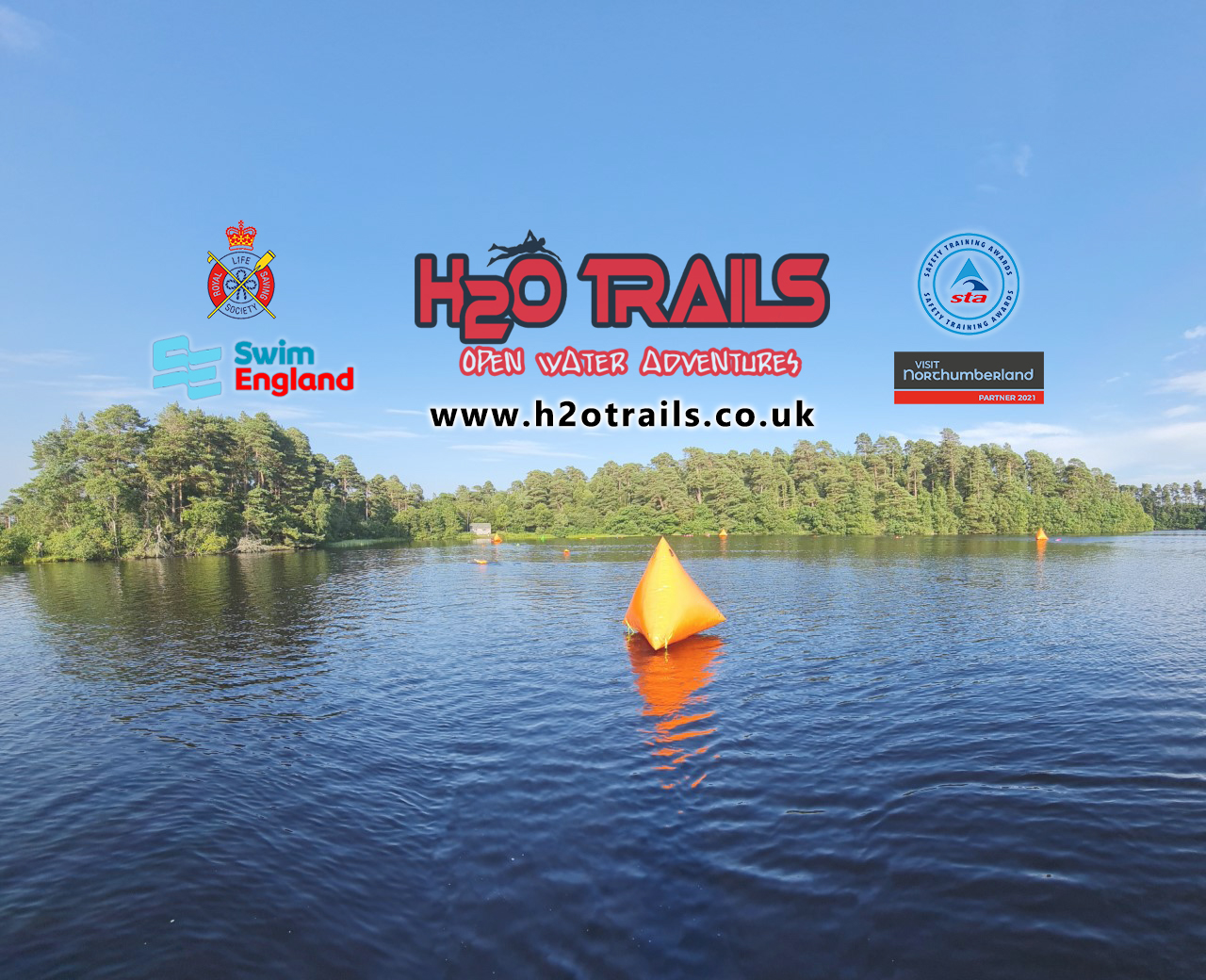- H2oTrails

- Jan 10, 2024
- 3 min read
"Fenwick Ridley's Unforgettable Outdoor Swimming Adventure with Robson Green and Angela Lonsdale on BBC 2's Weekend Escapes"

Join me, Fenwick Ridley, on an extraordinary outdoor swimming escapade featured on BBC 2's popular TV series, Robson Green's Weekend Escapes. In a memorable episode, I had the pleasure of guiding Robson Green and Angela Lonsdale from Coronation Street on an exhilarating outdoor swimming experience at the picturesque H2oTrails venue located at Sweethope Lough.
About H2oTrails and Sweethope Lough:
H2oTrails is my passion project, and Sweethope Lough serves as the perfect backdrop for a one-of-a-kind outdoor swimming adventure. Nestled in breath taking surroundings, Sweethope Lough provides a serene and natural setting for those seeking an immersive and refreshing outdoor experience. We are incredibly lucky to have this special place in Northumberland.
And here at H2oTrails we provide top quality lifeguarded swim sessions and coaching for kids and adults Outdoor Swimming and paddle boarding. Not forgetting that we also run winter swimming and high quality workshops to help teach about cold water with expert TeamGB Ice swimmer Fenwick Ridley aka GB Ice Viking (True Northumbrian)
The BBC 2 Episode: In the featured Weekend Escapes episode, Robson Green, with his outdoor swimming experience, was in his zone, while Angela Lonsdale candidly expressed her nervousness. However, with a careful and professional touch, I, Fenwick Ridley, provided coaching to ease Angela into the water. Thanks to the shallow sandy floor at Sweethope Lough, what started as apprehension turned into big smiles and a buzz of delight as Angela realized just how invigorating and enjoyable outdoor swimming could be.

Why Outdoor Swimming?
Discover the benefits of outdoor swimming and why it has become a favorite activity for enthusiasts like Robson Green and Angela Lonsdale. From the physical health benefits to the mental rejuvenation that comes from embracing nature, outdoor swimming at Sweethope Lough offers a unique and holistic experience.
Join the Adventure: Are you inspired by the Weekend Escapes episode and eager to embark on your own outdoor swimming journey? H2oTrails invites you to join the adventure at Sweethope Lough. To ensure a safe and enjoyable experience, we require participants to sign up as members on our website at www.h2otrails.co.uk. Please provide all requested information, especially details about your swimming experience, as this helps us determine whether a guided 1:1 lesson is necessary.
Membership Benefits:
Access to exclusive outdoor swimming events and experiences.
Regular updates on upcoming activities and adventures.
Priority booking for guided 1:1 lessons based on your experience level.
Sweethope Lough Guidelines:
Sweethope Lough is a private lake venue, and we kindly request that visitors do not turn up without signing up as members first. Due to limited parking availability, signing up allows us to manage the number of participants effectively. Additionally, please note that Sweethope Lough is not a public picnic area. We appreciate your cooperation in maintaining the tranquility and exclusivity of this unique outdoor swimming location.
Connect with Fenwick Ridley:
As the founder of H2oTrails and the host of this memorable Weekend Escapes episode, I invite you to connect with me, Fenwick Ridley. Follow my outdoor adventures, sign up for membership on our website, and join me in embracing the beauty of Sweethope Lough and the joy of outdoor swimming. Your next unforgettable experience awaits!



